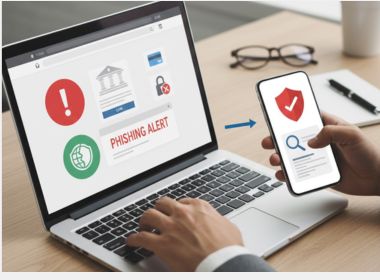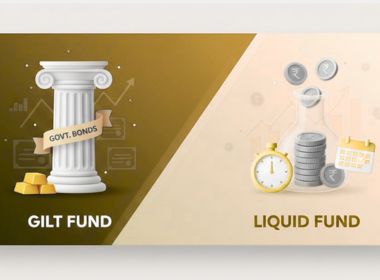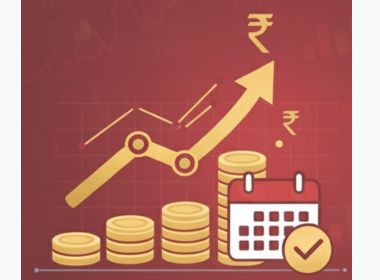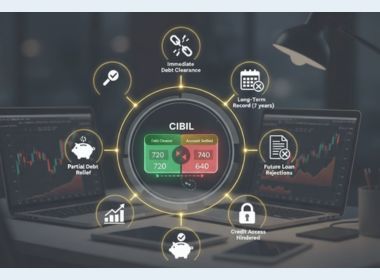Search Suggestions
- Gold Loan
- Money Transfer
- Mutual Funds

Understanding E-KYC: Meaning, Process & Benefits
In today’s fast-paced digital world, identity verification has become a crucial component of online services. Whether you're opening a bank account, applying for a mobile connection, or seeking financial services, verifying your identity securely and swiftly is essential.
Table of Content
- What is e-KYC?
- Understanding the e-KYC Process
- Required Documents for e-KYC Verification
- How to Do e-KYC Online
- Benefits of Doing e-KYC
This is where e-KYC online steps in as a game-changer. Short for Electronic Know Your Customer, e-KYC leverages digital tools to authenticate an individual's identity using government-issued documents, usually Aadhaar in India. It removes the need for physical paperwork and face-to-face meetings, making the verification process faster, safer, and more accessible.
With growing digital adoption across sectors, understanding what e-KYC is is vital for consumers and businesses alike. Gone are the days when verifying documents took days or even weeks. Now, e-KYC facilitates real-time verification, enabling smoother onboarding for customers and reduced costs for service providers. Regulatory bodies like the Reserve Bank of India (RBI) have recognised e-KYC as a legally valid method for customer authentication. In this blog, we will explore the detailed process, and how to do e-KYC online.
What is e-KYC?
e-KYC is a digital method of verifying a person's identity and address by using electronically submitted documents and biometric or OTP-based authentication. e-KYC improves compliance, enhances customer satisfaction, and reduces the risk of identity fraud. If you have ever signed up for a service and been asked to verify your Aadhaar via an OTP, you have already experienced the convenience of e-KYC.
Understanding the e-KYC Process
The e-KYC process is designed to be user-friendly and efficient. Here’s a step-by-step breakdown of how it generally works: -
- Consent: The individual gives consent to share their Aadhaar information with the service provider.
- Authentication Method: The user chooses between biometric authentication (fingerprint/iris scan) or OTP-based authentication sent to their registered mobile number.
- Data Retrieval: The Unique Identification Authority of India (UIDAI) shares the user’s basic information (name, date of birth, address, etc.) with the requesting entity.
- Verification: The institution uses this data to verify the user's identity instantly.
- Completion: Once verified, the service provider grants access to the requested service.
It’s important to note that only organisations registered with UIDAI as KYC User Agencies are authorised to conduct e-KYC.
Required Documents for e-KYC Verification
You can easily access e-KYC services online by just providing passport-sized photos. When you allow your service provider to access your information, UIDAI shares details like your name, address, gender, and date of birth. This means you don't have to submit physical documents to prove your identity.
For e-KYC application online through a SEBI-registered intermediary, your Aadhaar number is all you need. You will also have to upload a self-attested copy of your e-Aadhaar to a KYC registration agency. The KYC portal has a list of documents to help you if you have any questions.
How to Do e-KYC Online
If you are wondering how to do e-KYC online, here’s a quick guide: -
- Step 1: Visit the website or app of the service provider (bank, financial institution, telecom, etc.).
- Step 2: Choose the “e-KYC” option during registration or onboarding.
- Step 3: Enter your Aadhaar number and give consent for verification.
- Step 4: Choose OTP-based or biometric verification.
- Step 5: Once authenticated, your data is fetched directly from UIDAI, and your KYC is complete.
This process typically takes just a few minutes and can be done from the comfort of your home.
Benefits of Doing e-KYC
E-KYC offers numerous benefits for both consumers and service providers: -
- Speed and Efficiency: Real-time verification means services can be availed almost instantly.
- Paperless Process: Eliminates the need for physical documents and reduces administrative overhead.
- Cost-Effective: Cuts down operational costs associated with document handling and manual verification.
- Secure and Accurate: Uses biometric or OTP-based authentication, reducing the risk of identity theft.
- Convenient: Can be completed anytime, anywhere using a smartphone or computer.
These advantages have made e-KYC a preferred choice for onboarding customers, especially in the digital-first economy.
Suggested Read: What is KYC? Meaning, Types, and Importance
In an era where speed, security, and convenience matter more than ever, understanding and adopting e-KYC is not an option but is essential. Whether you're applying for an Instant personal loan, buying insurance, or simply activating a new mobile SIM, e-KYC makes the process secure and seamless. As we have explored, e-KYC means more than just digital identification - it represents a shift toward a smarter, paperless future. And now that you know how to do e-KYC online, taking that first digital step is easier than ever.
- Instant Personal Loan
- EMI Calculator
- Document Required
- Track Personal Loan
- Interest Rate
- Procedure and Eligibility
CATEGORIES
OUR SERVICES
-

Credit Score
-

Gold Loan
-

Personal Loan
-

Cibil Score
-

Vehicle Loan
-

Small Business Loan
-

Money Transfer
-

Insurance
-

Mutual Funds
-

SME Loan
-

Corporate Loan
-

NCD
-

PAN Card
-

NPS
-

Custom Offers
-

Digital & Cashless
-

Milligram Rewards
-

Bank Mapping
-

Housing Finance
-

#Big Business Loan
-

#Gold Loan Mela
-

#Kholiye Khushiyon Ki Tijori
-

#Gold Loan At Home
-

#Sunherisoch
RECENT POSTS

Understanding KDM Gold and Why it’s Banned
Know More
How BNPL Affects Your Credit Score
Know More
What is a Cheque and its Different Types in India?
Know More
Benefits of Paying Your EMIs on Time: Why Timely Payments Matter
Know More
A Complete Guide to Report Online Fraud
Know More
How does a Personal Loan Affect your Credit Score?
Know More
Gilt Fund vs Liquid Fund: Full Form, Meaning & SIP Guide
Know More
XIRR in Mutual Funds & SIP: Full Form, Meaning, Formula and How to Calculate
Know More
7 Key Factors to Consider Before Taking an SME Loan
Know More
Difference Between Black Gold and Gold: Everything You Need to Know
Know MoreFIN SHORTS

What Are Co-Pay and Deductibles in Insurance Policies?
Know More
Should You Take a Loan Against Your Mutual Fund or SIP?
Know More
Top 5 Best Mid-Cap Mutual Funds to Watch in 2026
Know More
Are Personal Loans Right for Retirees? Key Points to Consider
Know More
What Happens to a Personal Loan After the Borrower Dies?
Know More
Best Loan Choices for Credit Scores of 580 and Below
Know More
7 Reasons Why a Gold Loan Is the Best Option for Small Businesses
Know More
10 Reasons Why People in India Prefer Physical Gold
Know More
Real Estate vs Gold: Which Is a Better Investment in India?
Know More
10 Common Mistakes That Make Investors Lose Money in Mutual Funds
Know More
10 Reasons Why Gold Has So Much Appeal in Uncertain Times
Know More
7 Ways Settling Debt Can Impact Your CIBIL Score
Know More- South +91 99469 01212
- North 1800 313 1212


